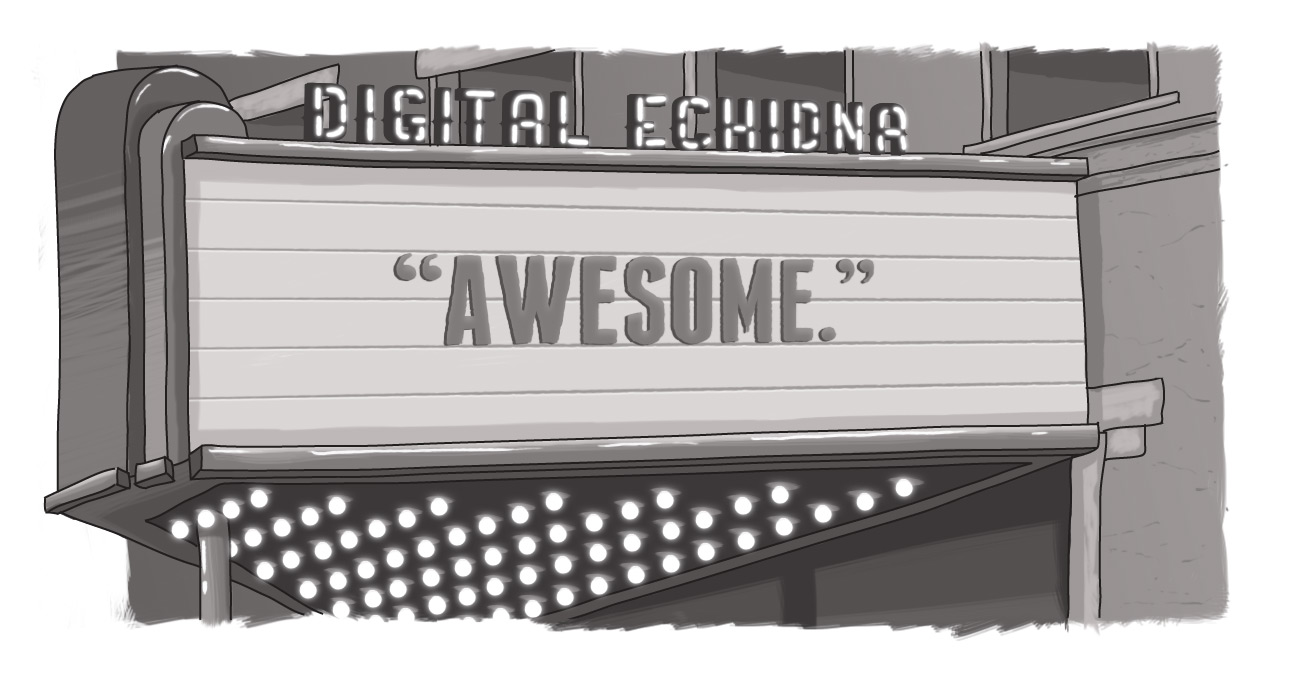Even More Lessons From the Fringes

When you’re communicating with anyone -- clients, potential customers, employees, or the general public -- trust is the strongest currency you can have. And that currency can buy you the benefit of the doubt sometimes.
But it takes time, effort, and -- most importantly -- delivering on your promises and providing quality and value over an extended period to build up that type of capital.
I thought about this last night while attending the London Fringe Festival’s performer showcase -- a night where all the shows have an opportunity to present for a couple of minutes to a crowd of interested theatregoers. The idea is that you showcase your wares -- whether that’s a scene or part of your show, or something else that gives viewers a sense of who you are and what to expect.
Digital Echidna is a proud, long-time sponsor of the London Fringe Festival.
This year, Fringe had a brilliant idea handed out leaflets, with all the shows performing, with venue details, and a rating system. That way, you could quickly rate the shows and, at the end, have a tangible reminder of what you liked and what you didn’t. Hopefully, that will prompt people to see shows.
As a long-time theatre reviewer, I go into each show as neutral as possible and work to leave any preconceived notions at the door. Each experience is unique and my role is to evaluate each show on its own merits. But, I thought, what harm could it be to play along.
First off, I’ll let you know that there are a bunch of things for which I have little patience as a reviewer (or theatre patron in general): I can’t stand self-indulgent theatre; I have no time for spectacle without purpose; and don’t like lazy or derivative writing; and I expect respect from both sides -- the audience needs to respect the time and vulnerability of the performers; the performers need to respect that the audience has chosen to attend a show and spend some of their own discretionary income -- so both parties need to offer their best. I also expect honesty out of both sides, myself and the performer.
Because of that, I tend to be less forgiving of bad or lazy performances. And I’ll reward ambition, even if it doesn’t achieve its end goal. But looking at my “scorecard” from last night, I noticed that trust impacted my assessments.
One of the great things about Fringe is that you see some performers return, year after year. You get to watch them grow, explore, and develop. And you add in a liberal sampling of new talent and shows. So you get the best of both worlds. During the performer showcase, there were a few presentations from some veteran crews that were wholly underwhelming and derivative of past performances. Yet, when I looked down, I graded them in the middle.
Why? Because I was giving them the benefit of the doubt. They earned that due to previous shows that I enjoyed, so I was more willing to grade them on a curve, as it was.
However, that’s a double-edged sword. When I attend that show, and it doesn’t meet the expectations previously set, then, as a customer, I’m going to feel let down. Trust buys you an off-day, but it doesn’t forgive a lack of quality.
When dealing with clients and customers, we need to appreciate the value of building trust. It allows us to take chances and be creative. One performer last night, a veteran of the circuit, used his entire stage time in the dark with a voice-over, only revealing his surprise character at the end. He used his history, his built-up capital, and his legacy of quality content to his advantage.
You want trust? Well, trust costs. And right here is where you start paying… in sweat. Wait, that might be “Fame,” but the sentiment is the same. You can argue all you want whether trust, initially, should be earned or given freely. But continued trust, an ongoing relationship that offers you freedom to be creative and affords you the benefit of the doubt, is undoubtedly earned. It’s earned by repeated behaviours, it’s earned by providing consistent, quality content, and it’s earned by living up to your promises.
Online or off, this trust is important. And all of your efforts matter. If you regularly fly off the handle on your Twitter account, only to apologize and roll back your statement, your credibility is going to be shot -- and that impacts both you and your organization. If you employ puffery in your promotional copy, but deliver shoddy results, that’s going to impact what people believe in you.
But if you’re open, honest, and reasoned. If you live up to your commitments, provide quality work, and not only admit to any mistakes, but actively take steps to ensure they never happen again, you’re building up that credibility capital.
Trust takes a long time to build and only a few seconds to squander. But the benefits of a relationship built on trust are immeasurable.
As a post-script, this Fringe thing is really becoming a thing in terms of content lessons. I invite you to check out our original “Lessons from the Fringe” from 2015, and our “More Lessons from the Fringe” from 2017.
How do I build trust and rapport with customers?
SUBSCRIBE TO OUR E-NEWSLETTER
 Subscribe
Subscribe


